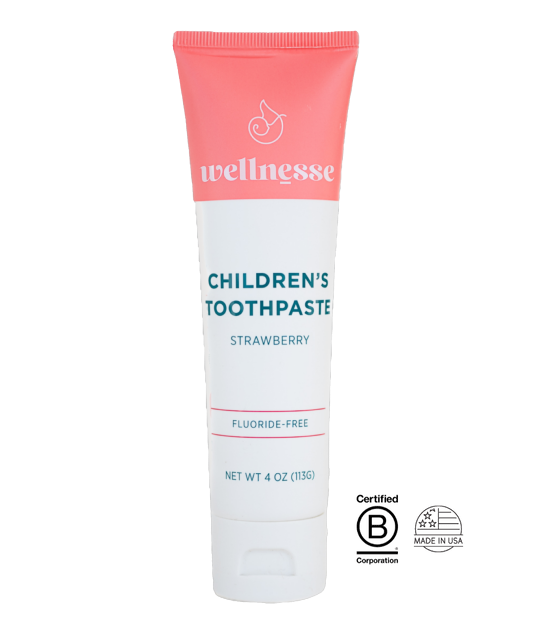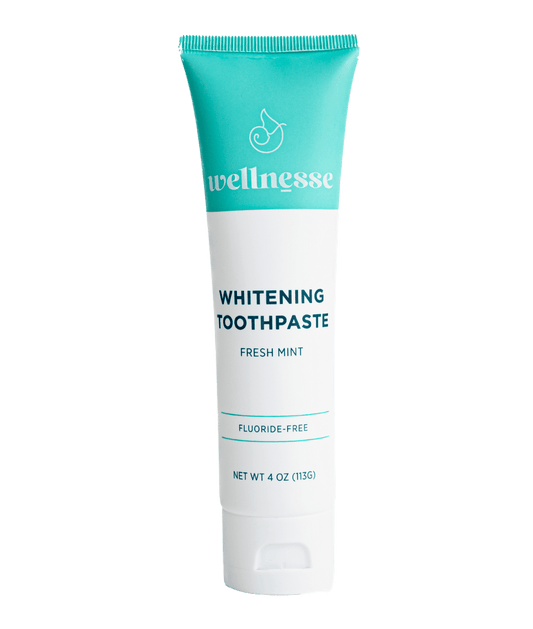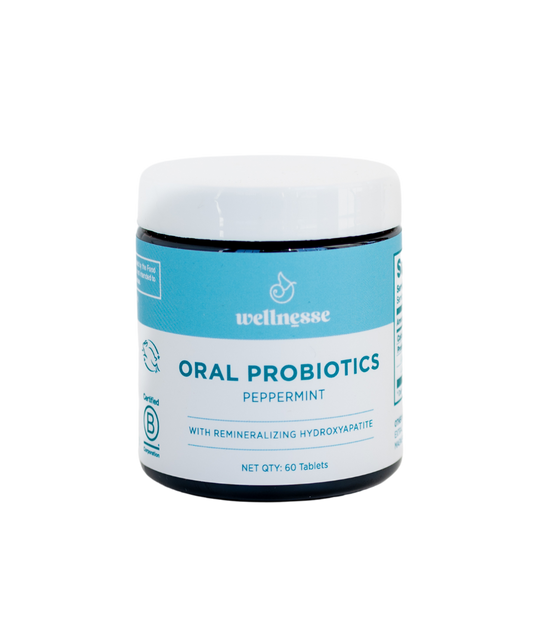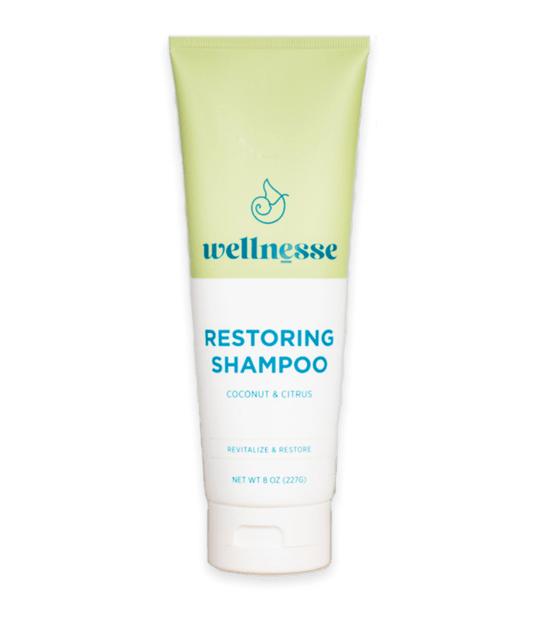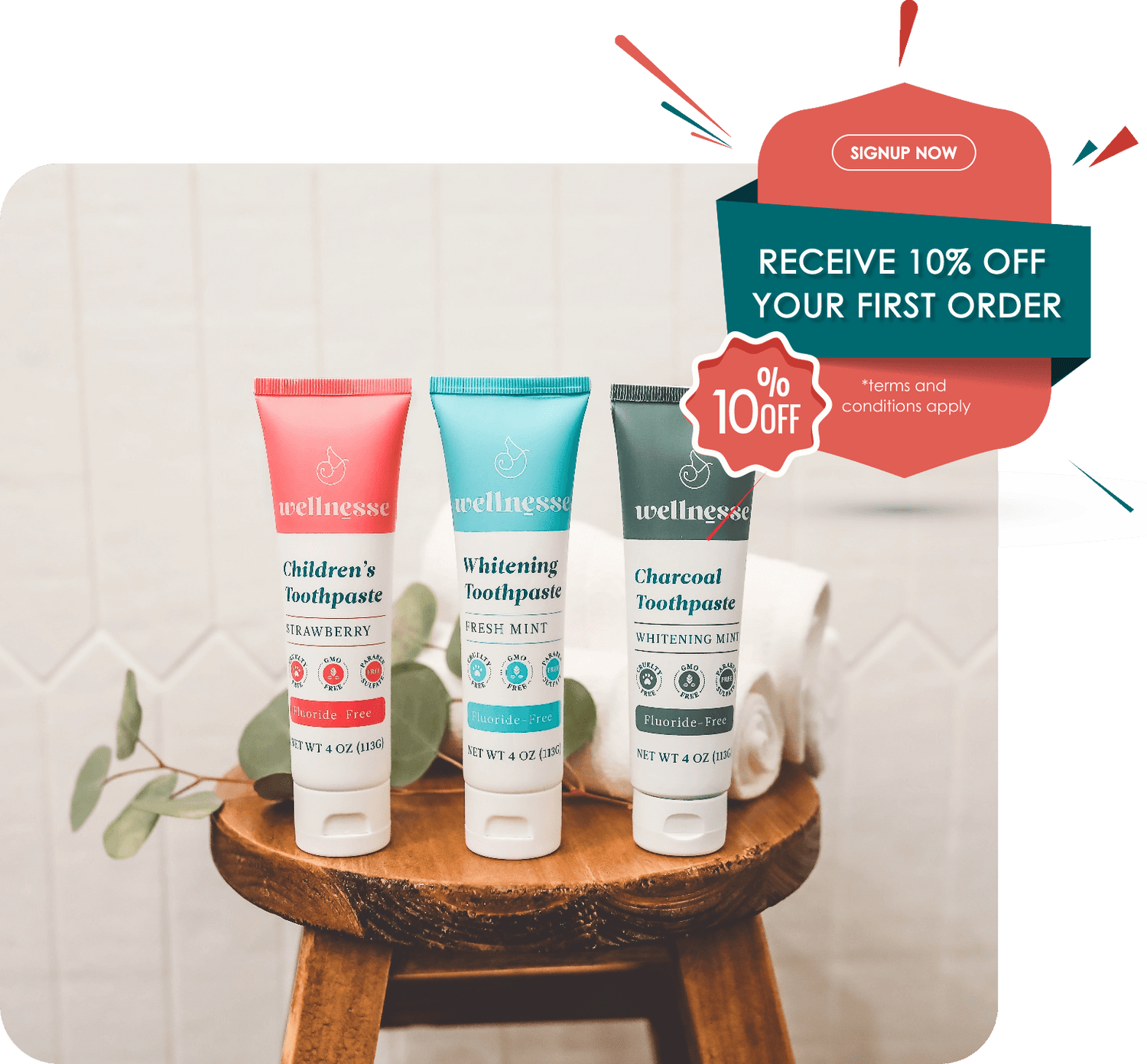
What Is Oil Pulling (& How It Can Help)
Oil pulling is an oral care detox practice that has been around for thousands of years. But in recent years - and with some celebrity endorsements - it has become significantly more mainstream. Since gaining popularity in ancient India, oil pulling has become known as a powerful, natural oral health remedy. This traditional practice helps to remove toxins from the body by swishing a spoonful (about one tablespoon) of oil in your mouth for 10 minutes a day.
For centuries, people have used oil pulling daily to prevent bad breath, tooth decay, bleeding gums, cracked lips, and throat dryness. Modern oil pulling also claims to aid everything from hangovers to diabetes to acne. So, what is oil pulling, how is it done, and what are the health benefits?
Up your oil pulling game with our powerful, organic Balanced Mouth Blend!
What Is Oil Pulling?
Oil pulling is a traditional Ayurvedic practice that involves swishing oil in your mouth for 10-20 minutes. Sesame and sunflower oil are used traditionally, but you can also use coconut oil, olive oil, peanut oil, or other high quality oils. (If you’re looking to add some fun to the process, here’s a great recipe for oil pulling chews!) While you're swishing, the oil should become milky white. It's believed that this motion allows the oil to absorb toxins and remove them from the mouth.
Oil Pulling How-To
Oil pulling is a simple practice requiring no special equipment or effort. You can do it first thing in the morning or any time throughout the day. Here's how to get started:
● Put one tablespoon of oil into your mouth and swish it around, ensuring you cover all areas, including your teeth, gums, and tongue. Don't swallow any; move it around your mouth for 10-20 minutes.
● After 20 minutes, spit out the oil, rinse your mouth with warm water, and brush your teeth as usual. Do this daily for the best results.
● You can also use lukewarm purified water to rinse your mouth after oil pulling. This helps remove any remaining toxins and relieve any discomfort in the gums and throat. Be sure to brush your teeth thoroughly afterward.
● Avoid eating anything immediately after oil pulling, as it can disrupt digestion.
What Are the Benefits of Oil Pulling?
The benefits of oil pulling range from stronger oral hygiene to improved overall health. Here are some of the claimed benefits:
Preventing Harmful Bacteria in Your Mouth
Oil pulling is believed to help reduce harmful bacteria like streptococcus mutans and plaque, which can lead to tooth decay. Studies have shown that oil pulling with sesame oil significantly reduced the number of streptococcus mutans in participants' mouths.
For example, one study shows that 75 adolescents used an antibacterial mouthwash or sesame oil for ten days. After 15 days, both the mouthwash and oil-pulling groups had a reduction in the number of streptococcus mutans, but there was no statistically significant difference between the two. This suggests that oil pulling may be as effective as an antibacterial mouthwash at reducing harmful bacteria.
Reducing Bad Breath
Oil pulling can help reduce bad breath (halitosis) by reducing the number of odor-causing bacteria in your mouth. Additionally, oil pulling can help remove food particles stuck between your teeth, which can cause both cavities and bad breath.
There are several causes of bad breath, including infection, gum disease, poor oral hygiene, and tongue coating, which is when bacteria and food particles accumulate on your tongue. Oil pulling can help remove some of these particles, thus reducing bad breath.
Preventing Cavities
Oil pulling can help prevent cavities by reducing the number of bacteria in your mouth. As previously mentioned, several studies have shown that oil pulling with sesame or sunflower oil reduces the amount of streptococcus mutans and other harmful bacteria, which are linked to tooth decay and cavities.
These bacteria can cling to the surface of the teeth, eventually forming plaque. This buildup of plaque over time produces acids that eat away at the enamel of the teeth, allowing cavities to form.
Reducing Inflammation and Improving Gum Health
Oil pulling may help reduce inflammation in your body by reducing the amount of toxic material absorbed into your bloodstream. The mouth is the gateway to the rest of the body, and oral health is intimately connected to overall health. When you do an oil pull, the oil helps to remove harmful microorganisms and toxins from your mouth, which may reduce the amount of inflammation in your body.
Several studies have also shown that oil pulling can benefit those with gingivitis, a gum disease. Gingivitis is the inflammation of the gums caused by plaque that builds up on teeth and along the gum line. Using certain oils with anti-inflammatory properties, like coconut oil, may help reduce the amount of inflammation and improve gum health.
If you're looking for a supplementary treatment to prevent plaque formation and promote healthy gums, oil pulling may be a great option!
A Safer Alternative
While oil-pulling shouldn't be a complete substitute for traditional dental care, it can be a safer alternative to using harsh chemicals or antibiotics in your mouth. Combine it with tooth brushing twice daily, flossing, and antimicrobial tongue scraping, and you have an unstoppable oral care combination!
While oil pulling is considered safe for children and teens, this practice should only be used with those old enough to control their swallowing and safely spit the oil out.
Cheap and Easy
One of the biggest benefits of oil pulling is that it's simple, inexpensive, and easy to add to your oral hygiene regimen. All you need is a healthy oil of choice - such as coconut or sesame oil - and a few minutes. You can even tackle other tasks while you're doing it! These ingredients are easily available in your kitchen, making it a very affordable (and convenient) way to improve your oral and overall health.
A common time for oil pulling is in the morning before brushing your teeth. Swish one tablespoon of oil around your mouth for 10-20 minutes and then spit it out. Be sure to rinse your mouth with pure, warm water afterward.
In time, you will reap the benefits of healthier teeth and gums!
Side Effects of Oil Pulling?
Oil pulling is natural and generally safe for most people. However, there are a few potential side effects to keep in mind. Oil pulling can cause jaw pain or discomfort as a result of holding the oil in your mouth for too long. If you experience discomfort, try cutting back on the amount of time! Additionally, some people may experience increased salivation during the process.
It's also important not to swallow the oil since it may contain toxins you do not want in your body, so always spit the oil out when you're finished. (Remember to spit into a trash can after swishing it around your mouth to avoid clogging drains or septic tanks!) After that, brush your teeth and rinse your mouth with warm water.
Conclusion
Oil pulling is a simple and natural way to improve oral and dental health and reduce inflammation. It is easy, inexpensive, and completely safe for most people. Oil pulling has been practiced for centuries and can help maintain healthy gums, teeth, and overall well-being. Pair your oil pulling with clean, effective personal care products, and you have an unstoppable oral care routine!



